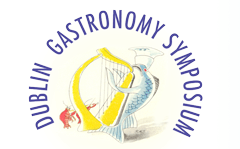Start Date
31-5-2022 11:45 AM
End Date
31-5-2022 12:00 PM
Description
“Moi, j’suis pas cocorico, j’suis pas fier d’être Français,” Florence, a migrant from France, declared that she does not carry an undying love for her home country. For her, transnational migration is tied to an emotional connection to those who still live France and is bound by her family in Montreal (QC, Canada); it is not restricted by borders or nations, but instead the place where she rests her hat, her conception of ‘home.’ Using oral history interviews, this paper investigates the intersection between emotion, identity, and foodways. The project is a study of métissage that explores the cultural negotiations, preservation, and exchange that occurs when migrants arrived in Montreal in the post 1960 period. The research objective is to study the experience of migration, forced or voluntary, and how the experience may have altered the development and preservation of migrants’ culture and foodways. How have migrant foodways intermingled over time? How does emotion and intimacy shape food processes? In line with the symposium’s theme, the study of migrants’ movement and foodways is at the center of this paper. Many migrants I have spoken to have described their cuisine and culture as tools for navigation, something deeply a part of their lives, yet ever-growing and susceptible to transformation.
DOI
https://doi.org/10.21427/r8ch-6d93
The Irreplaceable Frying Pan and the Green-Eyed Tiger: Emotional Transnationalism and the Moving Foodways of Migrants in Montreal
“Moi, j’suis pas cocorico, j’suis pas fier d’être Français,” Florence, a migrant from France, declared that she does not carry an undying love for her home country. For her, transnational migration is tied to an emotional connection to those who still live France and is bound by her family in Montreal (QC, Canada); it is not restricted by borders or nations, but instead the place where she rests her hat, her conception of ‘home.’ Using oral history interviews, this paper investigates the intersection between emotion, identity, and foodways. The project is a study of métissage that explores the cultural negotiations, preservation, and exchange that occurs when migrants arrived in Montreal in the post 1960 period. The research objective is to study the experience of migration, forced or voluntary, and how the experience may have altered the development and preservation of migrants’ culture and foodways. How have migrant foodways intermingled over time? How does emotion and intimacy shape food processes? In line with the symposium’s theme, the study of migrants’ movement and foodways is at the center of this paper. Many migrants I have spoken to have described their cuisine and culture as tools for navigation, something deeply a part of their lives, yet ever-growing and susceptible to transformation.
